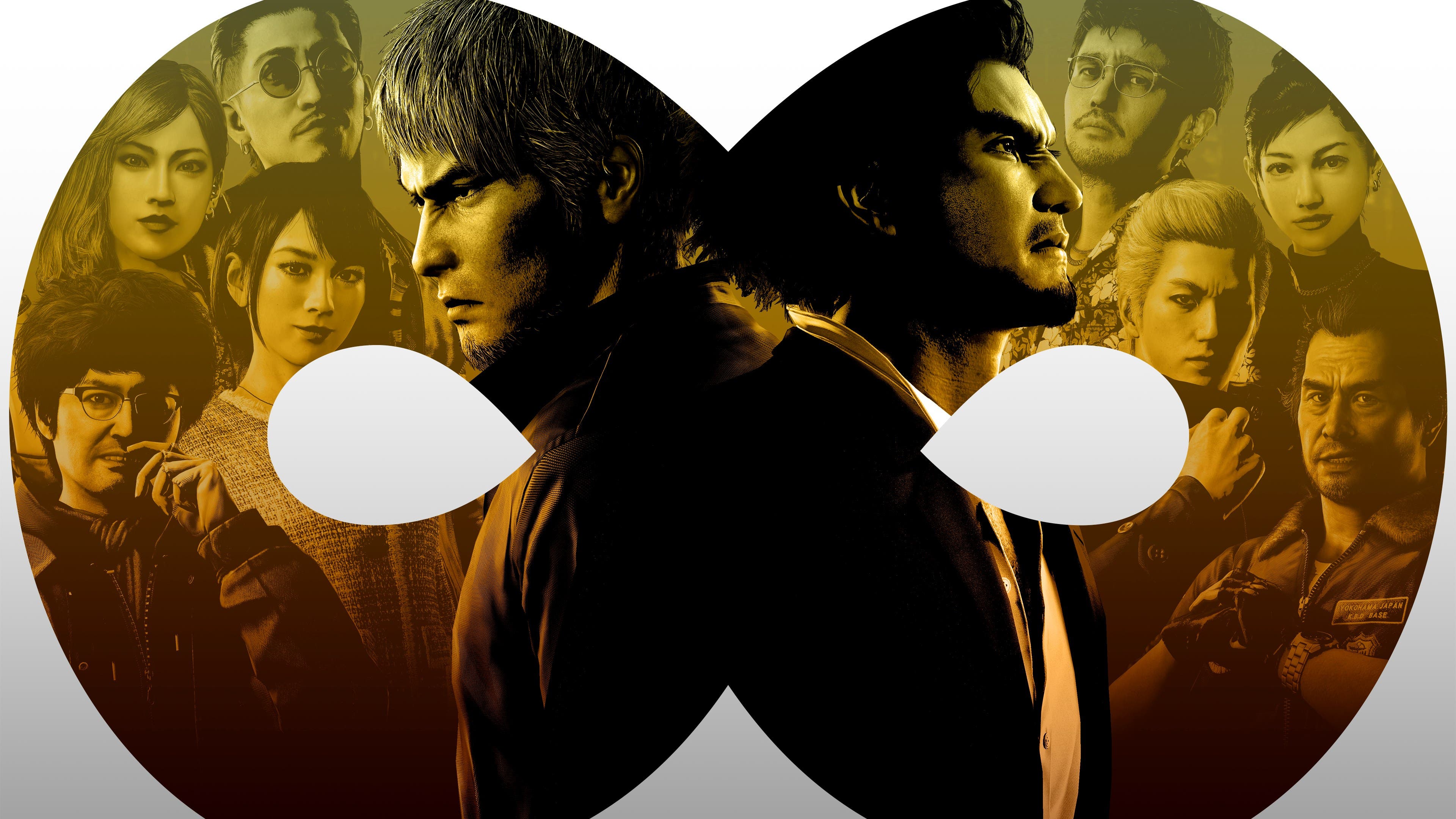Yakuza: Like a Dragon’s release heralded the series transformation from semi-open world brawler to full-on turn-based JRPG, embracing its true nature as an RPG and allowing the series to evolve into something greater. Now, four years on, Infinite Wealth follows a surprisingly strong entry in the series and has the daunting task of one-upping a game that, while not without its rough edges, is a pinnacle of the series. Paradoxically, it is both unbelievable and wholly unsurprising that Infinite Wealth surpasses its predecessor in almost every way to create an instant classic.
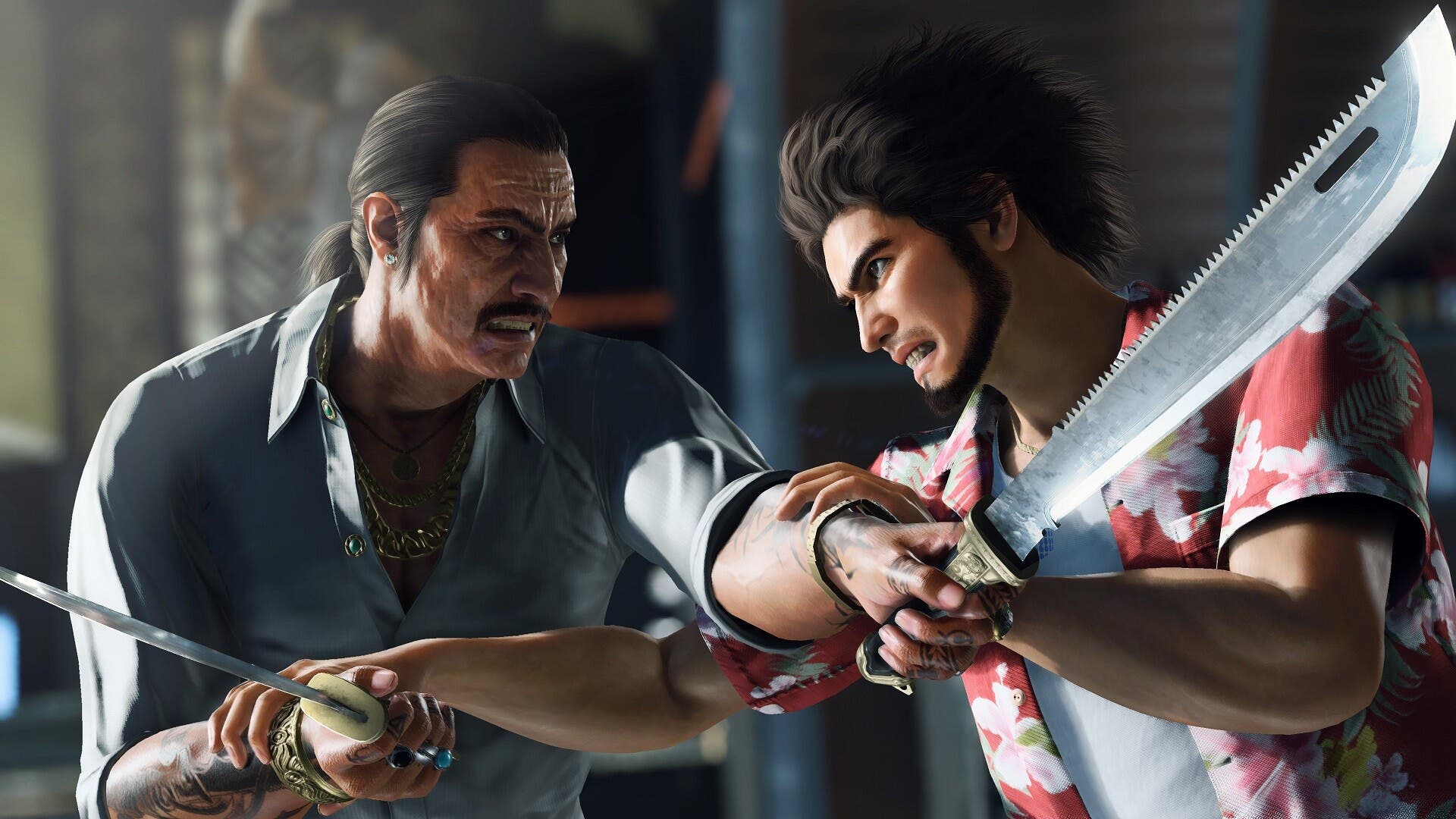
Note: This review contains story spoilers for Yakuza: Like a Dragon.
Ichiban Kasuga is one of the all time greatest protagonists in video game history. He has the blind optimism, persistence, and unflappable joy of a Labrador Retriever; he has loads of heart, empathy for literally everybody around him, and possesses the ability to be sincere and earnest when the moment calls for it; he is simultaneously clever and impossibly stupid, he is insightful, he possesses a puzzling mix of naivety and wisdom; he is deeply flawed and brimming with humanity. I love this beautiful himbo and we should all be so lucky as to have a friend half as wonderful as he is.
That Ryu Ga Gotoku studio has managed to create such a character in what many would characterize as a bleak, or at best cynical era, is no small feat. Ichiban is a rare video game character you can connect with on a level that’s seldom seen, and the joy derived from spending time as (or with) him immediately elevates the experience of playing Infinite Wealth, which sports a cast of characters that is practically unrivaled by any game in the quality of their writing, acting, and overall depth. RGG Studio’s superpower is knowing how to write characters that feel real, and that you want to hang out with.
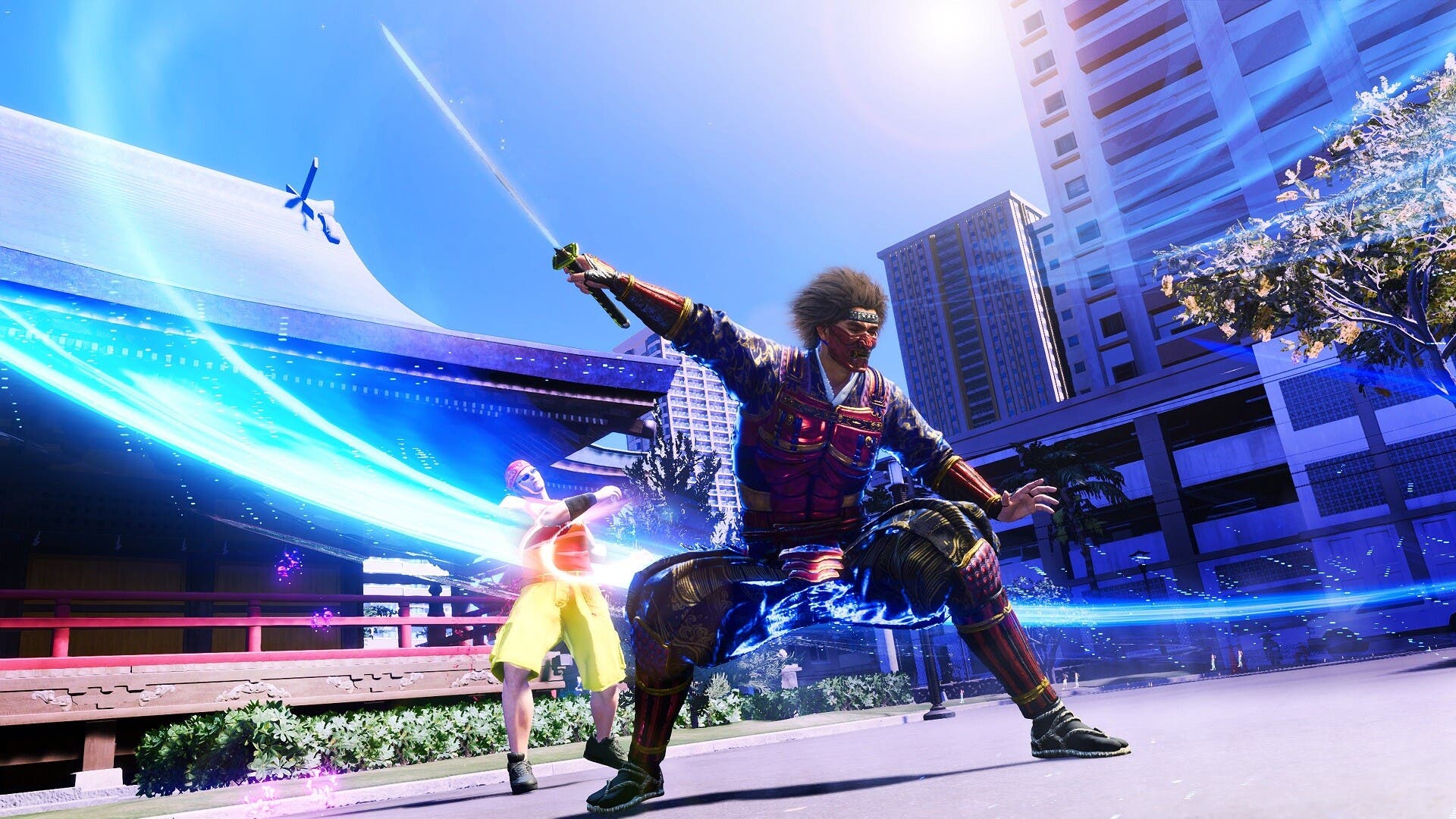
Infinite Wealth itself is a hell of a thing; a solid evolution of Like a Dragon’s shift to turn-based combat that adds a host of quality of life features to streamline and speed up the pace of battles, provides a plethora of activities to keep you busy in the over world, and a set of really well tuned mechanics that interact with each other well and reward you in unique ways so that no side activity is a waste of your time.
Whether its giving yourself a competitive edge via weapon crafting, experiencing more of the world and characters through sub stories, deepening your bonds with your party members via Drink Links, raising a group of top tier fighting perverts via Sujimon battles, or building up your own Five-Star resort at Dondoko Island, every single thing that you can do in Infinite Wealth provides you with meaningful rewards in your main quest, but in a true show of respect for your time, you’ll never be punished for opting out of any of them (though you’d be doing yourself a disservice not to experience everything Infinite Wealth has to offer).
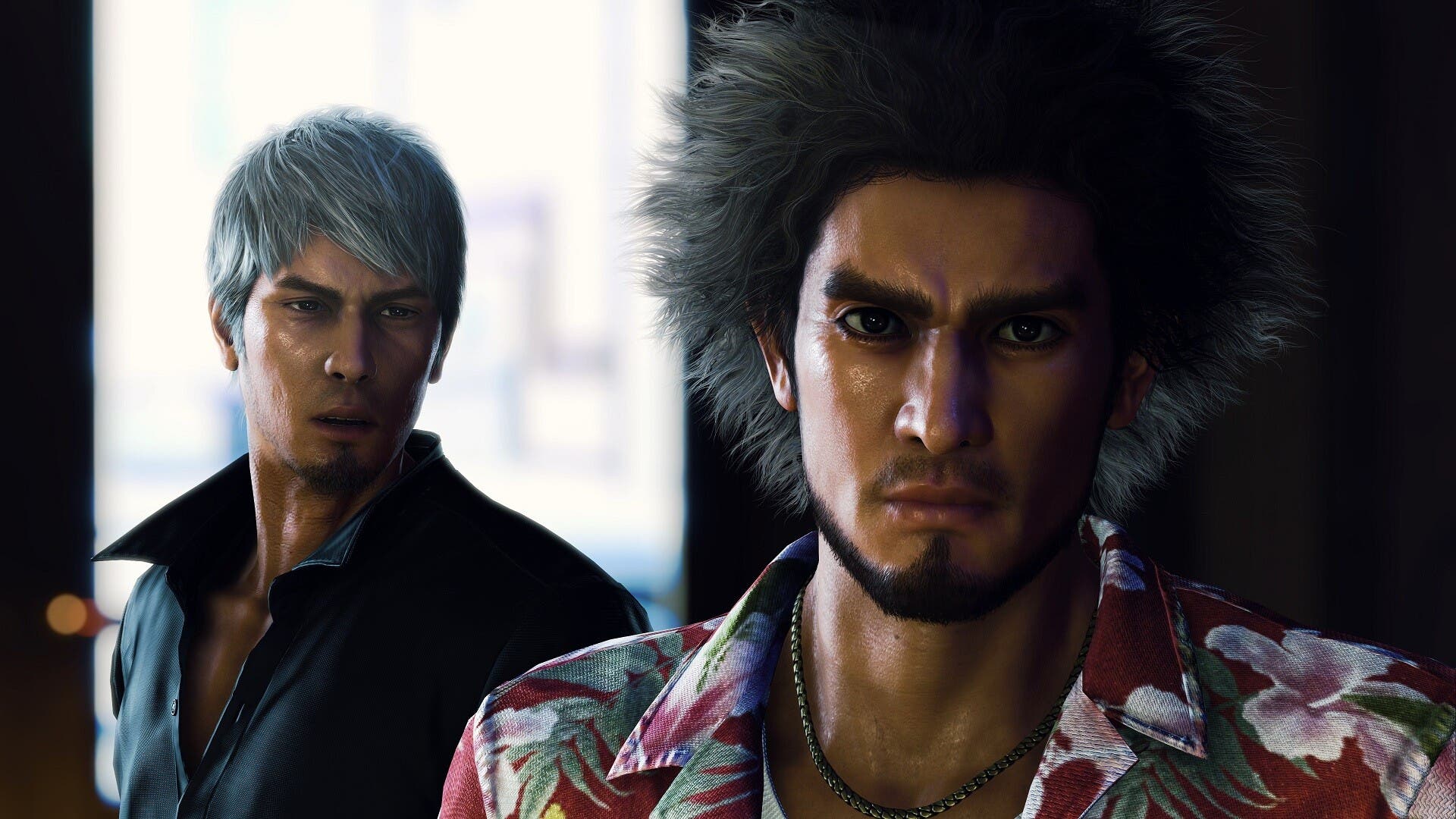
The story of Infinite Wealth follows dual protagonists Ichiban Kasuga and longtime series favorite Kazuma Kiryu, as their individual journeys find them united toward a common goal of finding Ichiban’s long lost mother, Akane, somewhere on the shores of Hawaii. While initially this seems like a convenient coincidence, in true Yakuza series fashion, the circumstances of Kiryu and Ichiban’s shared purpose are anything but coincidental. What begins as a lighthearted, even optimistically tinged adventure finds its way into a typical narrative of political intrigue and multiple competing factions of the criminal underworld, proving that despite the events of Yakuza: Like a Dragon, you can’t simply disband the major Yakuza families and expect all of those factions to disappear.
As a new web of interconnected interests and people slowly reveals itself, you get to meet some new party members who are easily on par with the cast of Like a Dragon’s gang, and you’ll spend plenty of time with your old pals as well, all of whom are woven into the story well. Importantly, Ichiban spends a good six chapters of the game with his new party members and friends before your old ones are brought back into the mix, giving you plenty of time to form attachments with them to ensure you appreciate them and their roles in the grander scheme.
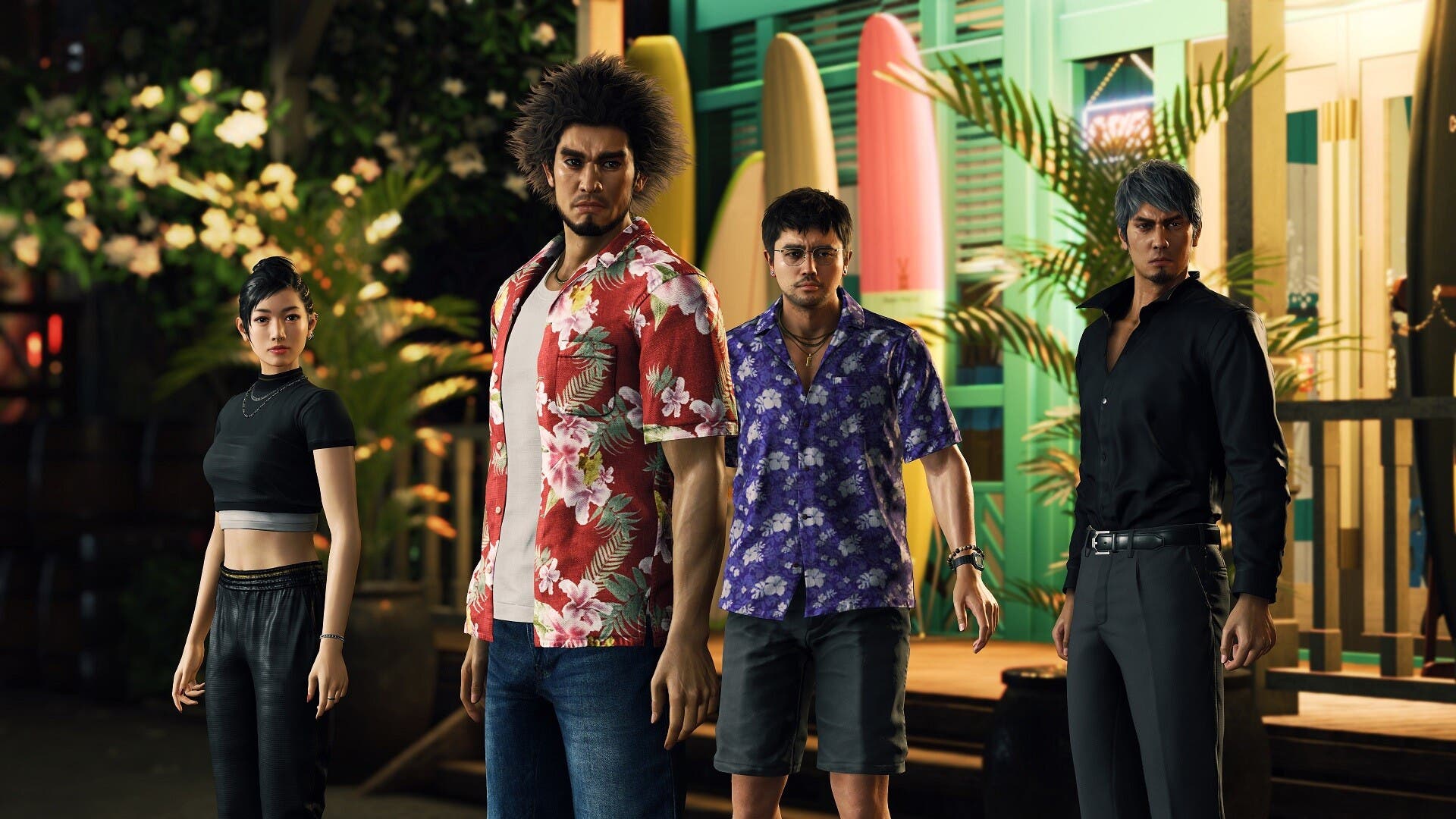
I’m not going to get into details about Infinite Wealth’s story, as doing so spoils a lot of the impact of each new plot development. My main question going into the game was how RGG Studio could pull off a compelling story outside of Japan and with the Yakuza supposedly largely disbanded, and I’ll say only that I should know by now to trust their abilities to surprise, delight, and compel me with a story that’s every bit as exciting as their previous outings. The emotional beats hit hard, the light hearted goofy moments are genuine and feel earned, and every new turn in the story is well planned and justified. It’s a compelling tale and the new setting and new threats at hand provide a playground for narrative that’s equal parts familiar and fresh.
Actually playing Infinite Wealth is a lot like dipping into any new Yakuza game; all of the familiar trappings are present, and this game builds upon everything before it to further refine and enrich the formula. You’ve got a fairly large scale “open city” to roam in Honolulu that trades the scale of something like GTAV’s Los Santos for greater depth in locations and activities within the space it provides. As you get further into the game, your map becomes more full of things to see and do, so that by Chapter 5 or so you are literally never without something to occupy your time regardless of what you’re in the mood for. Battles with enemies are carried out turn-based RPG style via menus, but with the added element of positioning your character on the field to line up extra effects on your attacks and chances to add follow-ups or combo attacks with other party members based on positioning that keep encounters feeling dynamic and exciting.
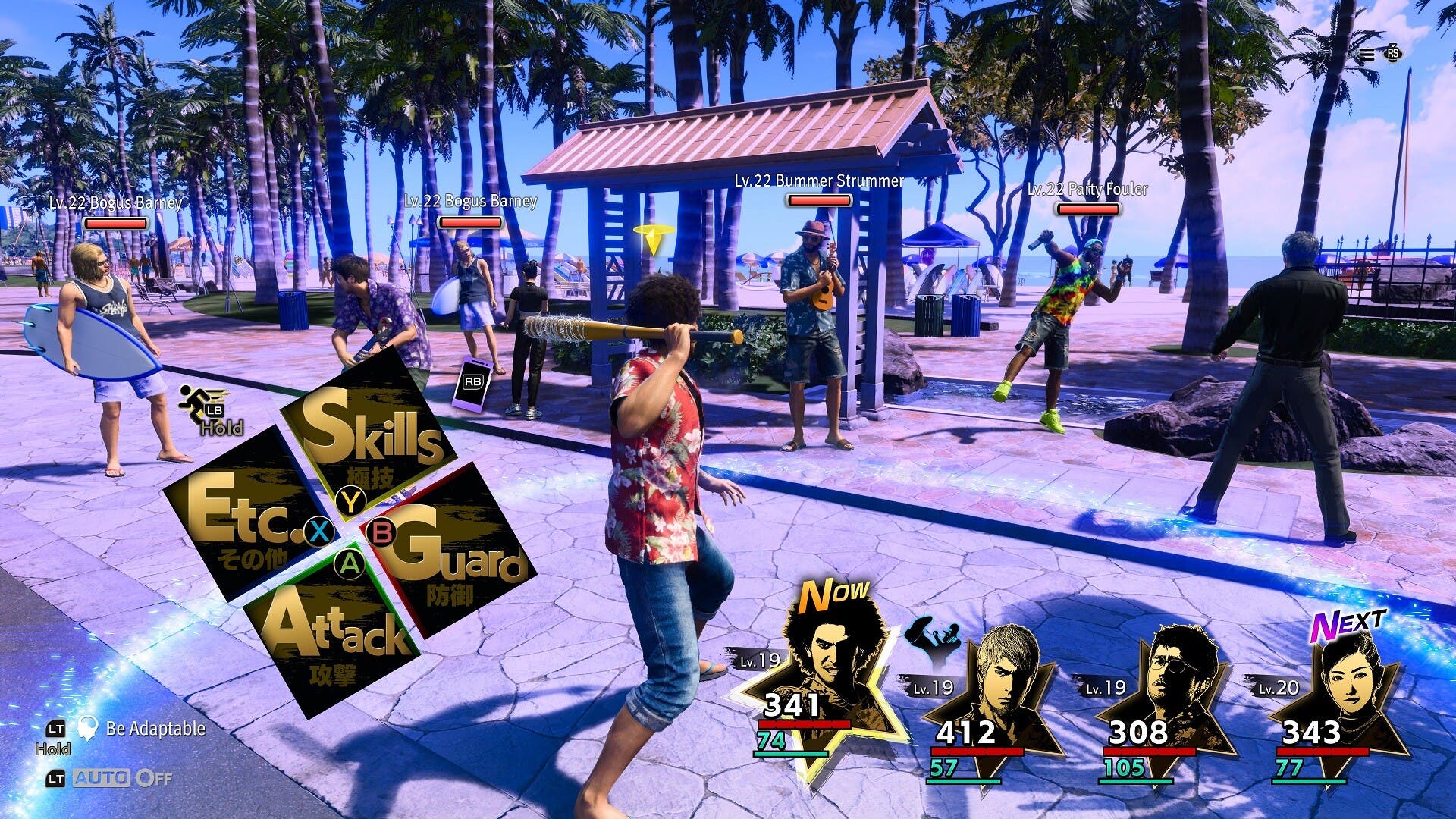
The two marquee additions to Infinite Wealth are its fairly ambitious mini games/systems: Sujimon battles and Dondoko Island. Whereas Like a Dragon introduced the idea of the Sujidex for cataloging every lowlife and miscreant you encountered on your quest through Yokohama, Infinite Wealth expands on the concept properly to deliver a full blown Pokémon clone in which through the normal course of playing you can capture enemies you encounter (through a super short microgame that’s focused on flattering their egos), recruit these Sujimon to your party, and seek out other Sujimon trainers to pit your team of Sujimon against and engage in full on Sujimon battles with.
There’s a full on multi-tiered set of sub stories revolving around fighting your way through multiple Sujimon gyms and winning the ultimate Sujimon championship, and it’s… well, it’s something else. Mechanically, it’s pretty well integrated with the rest of the game, so that you can either deliberately “mainline” the Sujimon quests all at once or just take them on as you progress through the regular game. Making enough progress unlocks a Sujimancer job for Ichiban in which he can call in his Sujimon party during normal battles and it’s an incredible choice that really lets you get weird with the game’s combat if you want.

And then there’s Dondoko island, and it is every bit the full on Animal Crossing clone that you’ve heard it to be, but in the best way possible. Imagine a streamlined and accelerated version of the Animal Crossing formula, where instead of being bound by the real world clock, days on the island progress at a set (and rapid) rate, such that you’re progressing through the stages of building up your resort from a literal garbage heap into a nigh-unrecognizable paradise raking in cash.
What’s truly wild is that almost no aspect of the Animal Crossing formula has been compromised on; harvesting, collections, item crafting, the item store, clearing out areas, building up new structures, attracting desirable figures to your island, it’s all there and the sheer breadth of what’s on offer is incredible. Once you unlock Dondoko Island, that could hypothetically just become what Infinite Wealth is for you, indefinitely, if that’s what you prefer.

There’s so much to do there that it’s hard to pry yourself away… I may have completed the entire storyline/quest there across a few play sessions before returning to the mainland to resume Ichiban’s journey. I have zero regrets about this choice, especially given the benefits to my party and my play through, but your mileage may vary.
Infinite Wealth is absolutely huge, and what I’ve covered here honestly only shows you glimpses of what is on offer. While Like a Dragon is a fantastic entry point into the series, I’m inclined to steer anybody who is interested to start here instead, as it’s so rich in every imaginable aspect, and nearly all of the rough edges of the previous game have been sanded off to create what is essentially an ideal version of a Yakuza… that is, a Like a Dragon game.
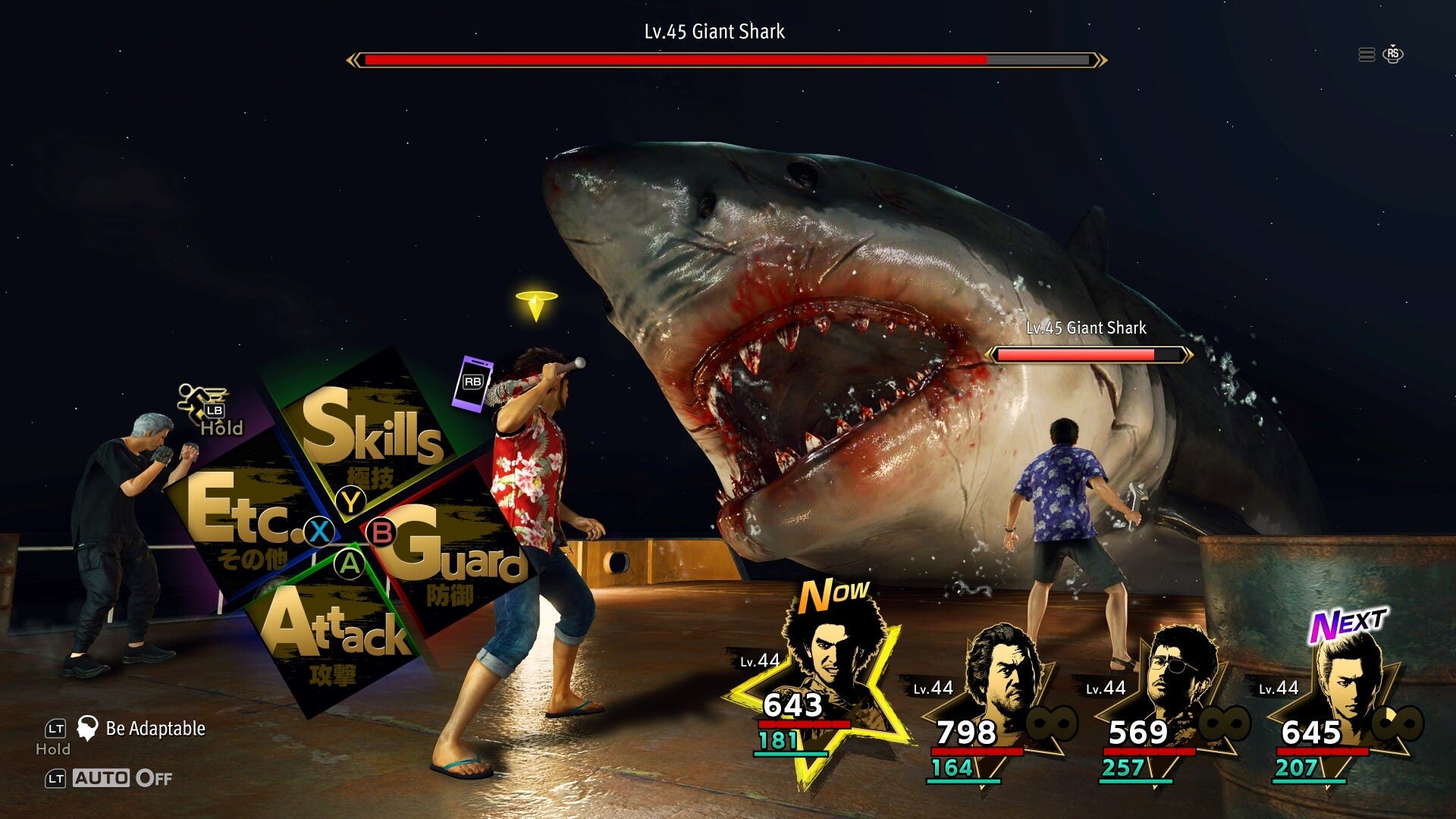
More importantly, for all of its scope, Infinite Wealth is an absolute joy to play at every moment; nothing is wasted, nothing is throwaway, not one aspect of this game is extraneous and everything there is to do will reward you in some fashion both in terms of gameplay benefit and your experience with the game itself. I’ve only become a fan of the series in recent years but I am a die hard one and y’all, Infinite Wealth is just an absolute blast to play. It’s a privilege to get to experience every new entry in the Like a Dragon series and for my money, Infinite Wealth is by far the best offering yet.
A Steam code was provided by the publisher for review purposes
